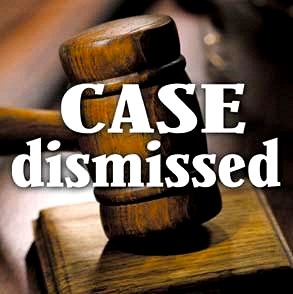WILLS VARIATION BASICS
Any discussion of the Wills Variation Act requires an understanding of the English common law which provides the background for thatAct.
English common law, developed by the English judges over the centuries, provided that when a person died, that person could leave his or her property to whomsoever he or she wished.
This complete freedom to dispose of one’s estate is known as “testamentary autonomy ” or “testamentary freedom”. This legal doctrine was developed by the English courts during a time (1700-1900) when little property was actually disposed of by will.
During that time, few people actually had any property and most wealth was made up of real property which was usually considered to be family property. Because it did not belong to the individual, it was not part of the individual’s estate to be disposed of by will.
When the children of wealthy families married, their families often made marriage settlements which included conditions about the ownership of the property and how it would pass upon the death of various family members. Thus, property governed by a marriage settlement was not part of an individual’s estate.
It was in this context that the English courts decided that a testator was free to decide who should inherit under his or her will.
Thus, the English common law left it to the discretion of testators to dispose of their estates as they saw fit. Even today at common law testators have no binding obligation to leaveany amount to their spouse or their children. Keep in mind that this common law approach is in stark contrast to the civil law approach which governs the rest of Europe most of the non-English speaking world.
This English common law was “received” or inherited by all of the former English colonies, including Canada. The remaining countries of Europe and their former colonies have civil law systems. Under this system a fixed portion of a deceased’s estate (often 50% to 75%) passes automatically to the surviving spouse and children. The testator can only dispose freely of a smaller portion of his or her estate. The credo seems to be “you had them, you give them your property when you die”.
In our common law world, the doctrine of testamentary freedom has been modified by statutes such as the Wills Variation Act which permit the spouse or children to make a claim against the estate in appropriate circumstances. Nevertheless, testamentary freedom still prevails unless there is a successful statutory claim brought under the Wills Variation Act.
In British Columbia, our Wills Variation Act provides for equity to be done where an appropriate claim is bought by a child or spouse who is disappointed with the provisions of the Deceased’s last will. They may have been given a minimal sum, left out altogether or disappointed because the deceased leaves them merely a life interest rather than giving them the property outright.
2. Assets subject BC Wills Variation Act.
What property is subject to the British Columbia Wills Variation Act?
Real property located in B.C. will be subject to the Wills Variation Act, no matter where the Deceased lived prior to his or her death.
Personal property (basically cash, securities and moveable assets) whereever located, will fall under the Wills Variation Act, only if Deceased was domiciled in B.C. when he or she died. In basic terms “domiciled” means that the deceased lived in British Columbia and intended to make B.C. his or her permanent home.
Only those assets which actually form part of the Deceased’s estate are subject to the Wills Variation Act claims. Thus, for example a pension benefit payable to a third party beneficiary will likely not be part of the deceased’s estate nor will insurance proceeds payable to a particular beneficiary. Although such excluded assets cannot be divided up by the court in action brought under the Wills Variation Act they may be considered by the court in ultimately determining what is a fair share of the estate for the various parties if a Wills Variation Act claim is made.
As to assets held in joint tenancy, it will depend on the individual circumstances of the case whether they pass automatically to the surviving joint tenant or whether they form part of the estate. For example, if the other owner is the Deceased’s spouse, chances are good that they will take the property by right of survivorship so it will not fall into the Deceased’s estate. If the property is held with someone else, it will depend who paid for the property and the reason for which it is held in joint names-it may be held in trust for the estate or it may pass by right of survivorship.
3. Legislative Background
New Zealand was the first common law jurisdiction to seriously question the doctrine of testamentary freedom on the basis that the family had a right to be protected. In 1900 New Zealand passed the Testator’s Family Maintenance Act and in 1920 British Columbia followed suit.
Other Canadian provinces have similar legislation however in other common law provinces children have no claim unless they are infants or were otherwise dependent on the testator.
The major difference is that under the B.C. Wills Variation Actthe testator’s children may bring a claim irrespective of their age or state of dependency.
Thus, in other provinces, a parent may disinherit an adult independent daughter on the basis of her gender alone or disinherit a gay son based on his sexual preference alone. There would be no remedy in either case unless the child was still a dependent.
In British Columbia, however, such wills would be open to challenge under the provisions of our Wills Variation Act as being unfair and in breach of our contemporary community standards.
4. Potential Claimants In British Columbia
Section 2 of the Wills Variation Actpermits a claim to be brought only by a spouse or child of the Deceased.
The Act defines spouse to include a same sex or common law spouse provided the couple had been cohabiting in a marriage-like relationship for at least 2 years prior to the Deceased’s death.
The case law interprets children to include adopted children but not step children. In the case of unacknowledged biological children DNA testing may be very helpful in appropriate cases.
5. Interpretation of our Wills Variation Act
Section 2 is the heart of the Wills Variation Act. It provides that where, in the court’s opinion, a will does not make adequate provision for the proper maintenance and support of the Deceased’s spouse or children, then the court has discretion to vary the will to make the provision that it believes to be adequate just and equitable in the circumstances.
The claimant doesnot need to prove financial need in order to obtain a variation of the will. Our courts have turned away from a financial needs-based approach since Walker v. McDermott [1931] SCC 94. In that decision the Supreme Court of Canada majority ruled that in deciding the question as to what is adequate provision, the court should proceed from the point of view of the quotes judicious father of a family seeking to discharge both his marital and his parental duty”.
This approach was upheld in the modern day decision of Tataryn v. Tataryn [1994] 2 SCR 807 where McLachlin J (now the Chief Justice of Canada) clarified the moral duty concept and observed that in applying the Wills Variation Act “the search is for contemporary justice” (p. 815)
Over the decades, our courts have gradually settled the proper considerations concerning s. 2 of the Act and the relevant principles were succinctly summarized by Satanove J. in Clucas v. Clucas BCSC A9732988.
Satanove J summarizes the test for adequate and proper maintenance and support under s. 2 of the Wills Variation Act, describing it as an objective analysis of whether the testator was “acting in accordance with society’s reasonable expectations of what a judicious parent would do in the circumstance by reference to contemporary community standards.”
In paragraph 12 Satanove J. says as follows:
“The considerations governing the court’s decisions have
evolved over time and there is a fairly comprehensive set of
competing principles to which effect must be given. I have
endeavoured to summarize these as follows:
1. The main aim of the Act is the adequate, just and
equitable provision for the spouses and children of
testators. (Tataryn v. Tataryn Estate, [1994] 2
S.C.R. 807)
2. The other interest protected by the Act is
testamentary autonomy. In the absence of other
evidence a Will should be seen as reflecting the
means chosen by the testator to meet his legitimate
concerns and provide for an ordered administration
and distribution of his estate in the best interests
of the persons and institutions closest to him. It
is the exercise by the testator of his freedom to
dispose of his property and is to be interfered with
not lightly but only insofar as the statute requires.
(Tataryn, supra)
3. The test of what is “adequate and proper maintenance
and support” as referred to in s. 2 of the Act is an
objective test. The fact that the testator was of
the view that he or she adequately and properly
provided for the disinherited beneficiary is not
relevant if an objective analysis indicates that the
testator was not acting in accordance with society’s
reasonable expectations of what a judicious parent
would do in the circumstance by reference to
contemporary community standards. (Tataryn, supra;
Walker v. McDermott, [1930] S.C.R. 94; Price v.
Lypchuk Estate (1987), 11 B.C.LR. (2d) 371 (C.A.);
Dalziel v. Bradford et al. (1985), 62 B.C.L.R. 215
(B.C.S.C.))
4. The words “adequate” and “proper” as used in s. 2 can
mean two different things depending on the size of
the estate. A small gift may be adequate, but not
proper if the estate is large. (Price v. Lypchuk
Estate, supra)
5. Firstly, the court must consider any legal
obligations of the testatrix to her spouse or
children and secondly, the moral obligation to her
spouse or children. (Tataryn, supra)
6. The moral claim of independent adult children is more
tenuous than the moral claim of spouses or dependent
adult children. But if the size of the estate
permits, and in the absence of circumstances negating
the existence of such an obligation, some provision
for adult independent children should be made.
(Tataryn, supra)
7. Examples of circumstances which bring forth a moral
duty on the part of a testator to recognize in his
Will the claims of adult children are: a disability
on the part of an adult child; an assured expectation
on the part of an adult child, or an implied
expectation on the part of an adult child, arising
from the abundance of the estate or from the adult
child’s treatment during the testator’s life time;
the present financial circumstances of the child; the
probable future difficulties of the child; the size
of the estate and other legitimate claims. (Dalziel
v. Bradford, supra and Price v. Lypchuk, supra)
8. Circumstances that will negate the moral obligation
of a testatrix are “valid and rational” reasons for
disinheritance. To constitute “valid and rational”
reasons justifying disinheritance, the reason must be
based on true facts and the reason must be logically
connected to the act of disinheritance. (Bell v. Roy
Estate(1993), 75 B.C.L.R. (2d) 213 (B.C.C.A.);
Comeau v. Mawer Estate, [1999] B.C.J. 26 (B.C.S.C.);
and Kelly v. Baker (1996), 15 E.T.R. (2d) 21
(B.C.C.A.))
9. Although a needs/maintenance test is no longer the
sole factor governing such claims, a consideration of
needs is still relevant. (Newstead v. Newstead
(1996), 11 E.T.R. (2d) 236 (B.C.S.C.))
Most recently in the case of McBride v. Voth 2010 BCSC 443, Ballance J. reviewed six of the considerations in forming the existence and the strength of the testator’s moral duty to his or her adult independent children.
a. Contribution and Expectation
Contributions made by the children to the Deceased’s estate or care for the Deceased will strengthen the moral obligation to provide for his or her independent children. Similarly any contribution made by their deceased mother or father, the first spouse of the deceased, may support a claim to a moral obligation.
A moral duty may also arise if the Deceased’s conduct created a bona fide expectation to receive a benefit
b . Misconduct/Poor Character
S. 6(b) of the Wills Variation Act allows the court to refuse variation to a person whose conduct or character, in the opinion of the court, disentitles him or her to relief. Generally speaking, however, such conduct must be relatively severe in order to justify disinheritance.
c. Estrangement Neglect
The court will usually enquire into the reasons for the estrangement and the role the testator played. If the estrangement is seen to be largely the fault of the testator it may actually enhance the testator’s moral duty as a means of rectifying the testator’s neglect of the children.
d. Gifts and Benefits made by the Testator outside of the will
Where a testator makes gifts during his or her lifetime to the claimant or confers benefits by way of insurance proceeds or pension benefits etc. the court will take these into account in determining whether or not the deceased moral duty has been fulfilled outside of the will.
e. Unequal Treatment of Children
In the absence of relevant reasons for an unequal distribution there is a reasonable expectation that adult children will share equally even though there is no legal obligation.
f. Testators Reasons for Disinheritance/Subordinate Benefit
Where the deceased provides reasons for the disinheritance, if those reasons are shown to be inaccurate then the court may vary the will under the provisions of the Wills Variation Act. If however they are accurate they may still be objectively insufficient when viewed through the lens of a judicious parent using contemporary standards. For example Peden, Smith et al 2006 BCSC 1713 involved a deceased who left three sons, two heterosexual sons and one gay son. He provided his two heterosexual sons with an outright inheritance however the gay son would receive only the income of the third share of the estate. In varying the will to convert that life estate to be an outright gift to the gay son, the court observed “homosexuality is not a factor in today’s society justifying a judicious parent disinheriting or limiting benefits to his child.”
Conclusion
The Wills Variation Act is an important piece of legislation because it allows equity to be done for both spouses and adult independent children who have been wrongfully disinherited.
Whether the disinheritance arises because of family abuse, elder abuse or cultural norms favouring male heirs there are many circumstances in which the Wills Variation Act allows for equity to be done for the surviving family.







